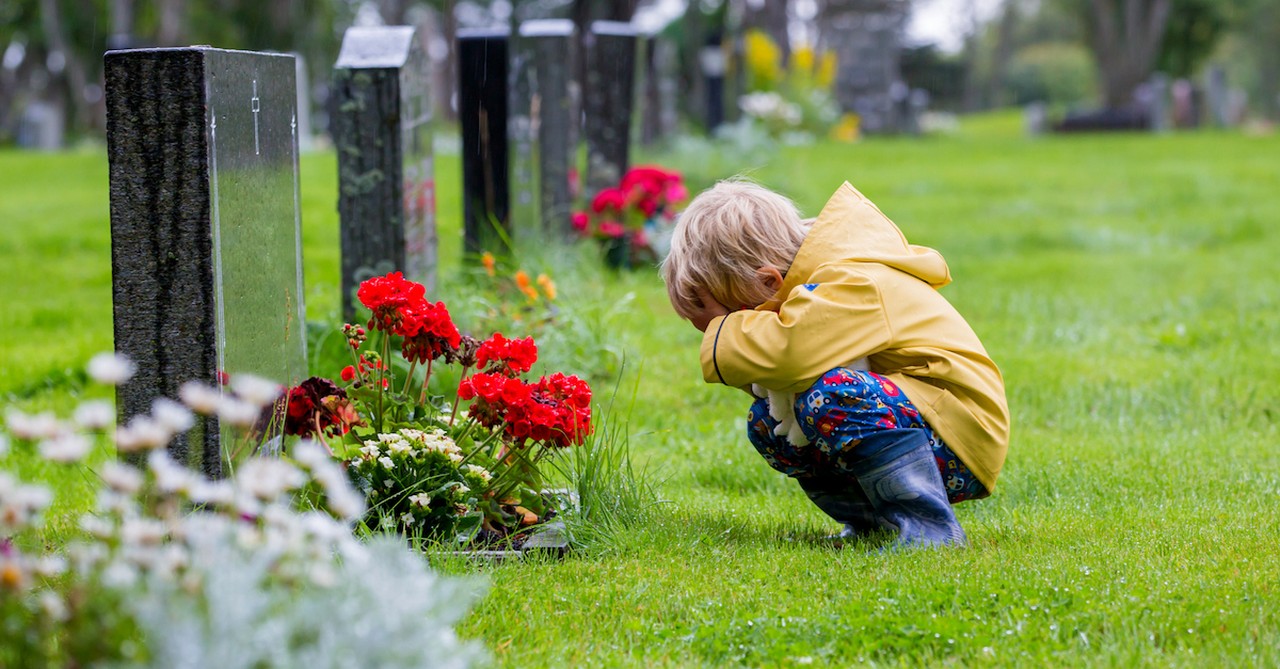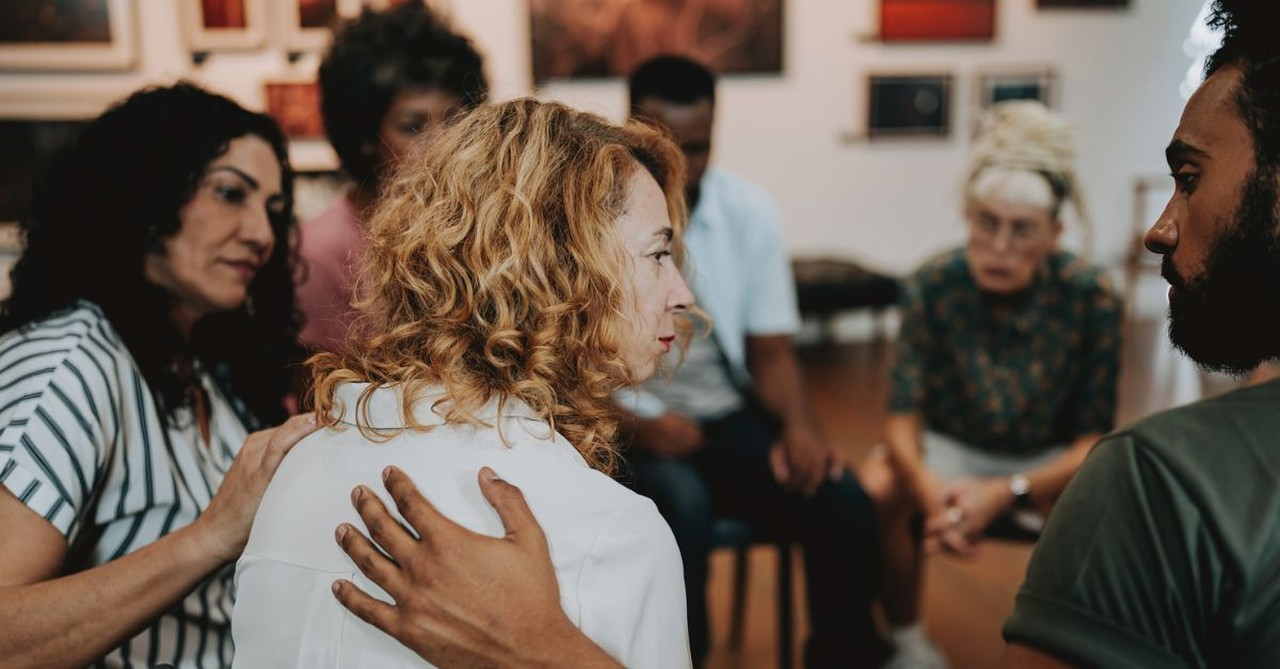4 Costly Consequences of Avoiding Grief

Reaching for her scissors, the hairdresser I'd never tried before asked what I did for a living.
"I'm a psychologist," I answered, "which is a therapist with a doctoral degree."
Her response surprised me. Apparently, her ex was also a psychologist.
But the rest of her story surprised me even more.
They had been seeing each other for a while by the time he graduated from his doctoral program. Their relationship was so solid, she plunked serious cash to throw a lavish party for him. She invited their close friends and family to celebrate the momentous occasion.
But then the fateful text pinged her phone. He instructed her to cancel the shindig the night before the party. The rest of the text explained why: their relationship was too toxic for him. He wanted out.
This sad tale happened two months prior to my haircut appointment.
"I'm so sorry," I gasped. Such a shocking behavior from a newly minted mental health professional!
"That's not all," the hairdresser responded. "He found someone else weeks later." The hairdresser complained about the optics of how quickly he moved on—as though she, and the breakdown of their relationship, meant nothing to him.
A huge portion of life consists of grief and loss. They're such a regular part of our existence, it's easy to overlook the variety of loss we all face. Think about having to move from a neighborhood you grew up in. Never hearing back from the person who interviewed you for a dream job. Realizing that the aging process is marching on. A falling out with a friend. Being cut off from certain family members over political differences.
These are just a few examples concerning grief and loss.
Sadly, unless it's the death of someone close to us—and even then—it can be tempting to downplay the emotional cost of a loss. But we're risking a lot when we dismiss grief as a non-issue. Here are four crucial areas that are at stake when we don't grieve:
1. Our Witness

1. Our Witness
SLIDE 1 OF 5
I have no clue if the hairdresser is a believer or not. However, I observed how her words contradicted her body language. "I've healed from my breakup," she promised. However, her facial expression bordered on glowering. From the time I walked into the salon until she finished trimming my hair, she offered no friendly smile.
Likewise, many in the body of Christ have sustained some type of loss and are morose. Miserable. Many make a similar claim as having healed from their loss, just as this hairdresser did, although with different details:
"It takes a lot to faze me. Not getting the promotion is nothing."
"The foreclosure was so long ago. It doesn't have any impact on me today."
"We had to put our family dog to sleep, but it's for the better. She was in so much pain."
"I've cut off my ex and the affair partner. They don't affect me anymore."
There's a difference between those who have taken the hard road of grieving and those who have yet to do so. The former exude wisdom, tinged with sadness, maybe, but not anger. In contrast, those who haven't fully processed their losses can come across as resentful.
How we carry ourselves can influence the world around us to draw closer—therefore giving us time to witness to them about the love of God—or stay away from us. As an ex-Satanist said, "The thing that kept me from Christ was Christians." Spoiler alert: he eventually became born again. However, his conversion was no thanks to the Christians he met, who were "lukewarm" and "double-minded."
How we carry ourselves leaves an impression on the world around us—including those who don't know Jesus yet.
As for me and the hairdresser, given the surly treatment I received in her chair, I'm not sure I'll book an appointment with her again.
2. Our Family

2. Our Family
SLIDE 2 OF 5
If you had to bury a family member, not grieving that loss is detrimental for the entire family. (This is especially true if you lost a spouse, which ranks as the top stressor in Dartmouth University's Stress Test.) But death isn't the only thing to look out for. Emotionally powerful incidents involving loss—divorce and separation; stillbirth, miscarriage, abortion; failed engagement—have the potential to affect everyone in the family, even if that family denies (or minimizes) the incident's significance. Including if the family holds to an unwritten norm of staying silent about anything gruesome. (This strategy will actually backfire; sweeping things under the rug only serves to amplify suppressed emotions.)
Grief is heavy. However, the load becomes lighter when we share it with fellow souls suffering alongside us.
Related Resource: Lord, Hear My Prayer... When I’m Sad
Sadness often brings physical, emotional, and spiritual fatigue—and many of us don’t know how to handle it. We try to medicate it, ignore it, or compare it away. But Scripture gives us another path: the ancient practice of lament. In this episode of the Lord, Hear My Prayer series, Nicole tackles one of the hardest yet most human emotions.
In this episode of How to Study the Bible, Nicole walks through Psalm 13, demonstrating how lament provides a sacred rhythm for processing pain: from complaint, to calling on God, to choosing trust and praise. She also weaves in powerful modern applications and gentle encouragement for listeners to bring their sadness with God, not away from Him. This episode is part of our How to Study the Bible Podcast, a show that brings life back to reading the Bible and helps you understand even the hardest parts of Scripture. If this episode helps you know and love God more, be sure to subscribe to the How to Study the Bible Podcast on Apple or Spotify so you never miss an episode!
Photo credit: ©GettyImages/tatyana_tomsickova
3. The Future

3. The Future
SLIDE 3 OF 5
We're fearfully and wonderfully created (Psalm 139:14) and crafted in God's image (Genesis 1:27). However, humans are not infinite. Only God is. Being finite means what every adult has discovered: we're bound by many limitations, including time.
For instance, a divorcée who spends most of the day seething because her ex wound up dating the socialite neighbor in the huge corner house won't have the creativity or passion left to plan for her future.
The father who lost his child to cancer—but became workaholic to avoid his grief—wouldn't have much time to comfort his wife or cry with her. What shape would their marriage be in if he kept pulling in 100-hour workweeks?
A mother who endured childhood neglect might unknowingly treat her children similarly if she doesn't take the time to mourn the lack of love and security in her own childhood.
See the point?
Whether or not our future brims with the abundant life Jesus gave us (John 10:10) depends on how well we grieve our losses presently.
4. Physical Health

4. Physical Health
SLIDE 4 OF 5
We're spirit beings with a soul and a body (1 Thessalonians 5:23). These three integral parts of us are intertwined, which means that what happens to one will affect the other two.
For instance, here's research that shows the link between the soul and the body. Dr. Mary-Frances O'Connor, a psychology professor specializing in grief, investigated grief's impact on heart function. She and her research team found that the death of our loved ones can impact our hearts by increasing blood pressure. More significantly, they also discovered how our emotional response to that loss also affects the condition of our heart.
What does this mean to you and me? If we don't tend to our grief, our body—and the organs within it—may very well pay the price.
Grieving Well

Grieving Well
SLIDE 5 OF 5
There's no one right way to grieve. If there could be various ways to customize something as simple as coffee, all the more is true of grief. We can't compare how one person grieves versus another, because the way we're affected by loss is unique to each of us.
Further complicating the process is the fact that our souls contain parts, and they, too, can develop different reactions to loss. That's why you can feel sad, mad, hopeless, and relieved after a loss. You can likely trace these feelings to different parts within your soul.
The complexity of our feelings around grief was one reason I wrote Grieving Wholeheartedly: Bringing Healing to Every Part of Your Soul. Another reason had to do with my own grief. I utilize Internal Family Systems (IFS) therapy in my practice; since IFS helped me grieve well, I aspired to share this effective resource with other mourners.
If you are grieving, please accept my condolences. May your soul receive the healing it craves.

Originally published July 31, 2025.






